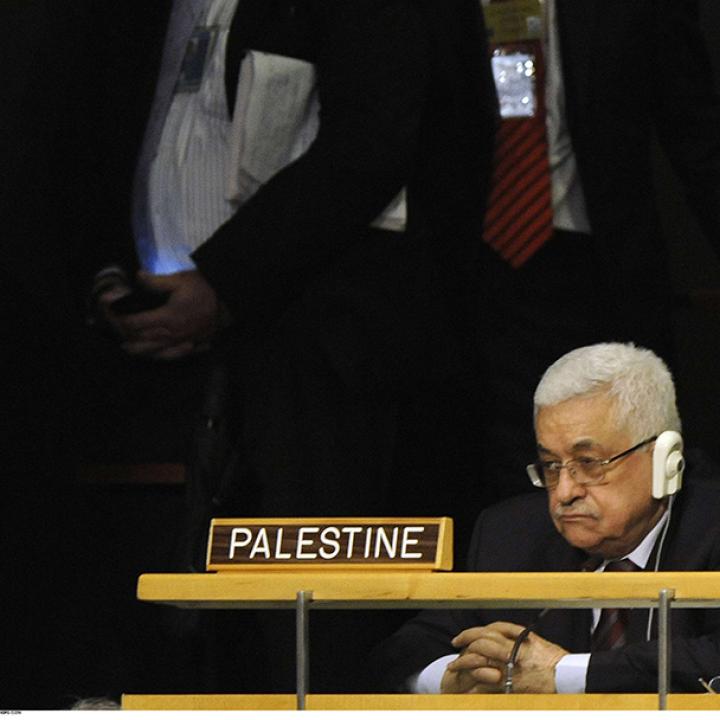

Palestinians must be asked to respond to proposals that address Israeli needs and not just their own.
The president of the Palestinian Authority, Mahmoud Abbas, insists on using international institutions to pressure Israel, even after he was rebuffed in the United Nations Security Council, where he sought a resolution mandating Israeli withdrawal from the West Bank and East Jerusalem. Mr. Abbas has now announced that he will turn to the International Criminal Court -- a move that will produce Palestinian charges and Israeli countercharges but not alter the reality on the ground.
A European official I met recently expressed sympathy for the Palestinians' pursuit of a Security Council resolution. I responded by saying that if he favors Palestinian statehood, it's time to stop giving the Palestinians a pass. It is time to make it costly for them to focus on symbols rather than substance.
Since 2000, there have been three serious negotiations that culminated in offers to resolve the Israeli-Palestinian conflict: Bill Clinton's parameters in 2000, former Israeli Prime Minister Ehud Olmert's offer in 2008, and Secretary of State John Kerry's efforts last year. In each case, a proposal on all the core issues was made to Palestinian leaders and the answer was either "no" or no response. They determined that the cost of saying "yes," or even of making a counteroffer that required concessions, was too high.
Palestinian political culture is rooted in a narrative of injustice; its anticolonialist bent and its deep sense of grievance treats concessions to Israel as illegitimate. Compromise is portrayed as betrayal, and negotiations -- which are by definition about mutual concessions -- will inevitably force any Palestinian leader to challenge his people by making a politically costly decision.
But going to the United Nations does no such thing. It puts pressure on Israel and requires nothing of the Palestinians. Resolutions are typically about what Israel must do and what Palestinians should get. If saying yes is costly and doing nothing isn't, why should we expect the Palestinians to change course?
That's why European leaders who fervently support Palestinian statehood must focus on how to raise the cost of saying no or not acting at all when there is an offer on the table. Palestinians care deeply about international support for their cause. If they knew they would be held accountable for being nonresponsive or rejecting a fair offer or resolution, it could well change their calculus.
Unfortunately, most Europeans are focused far more on Israeli behavior and want, at a minimum, to see Israel's continuing settlement policy change.
But turning to the United Nations or the International Criminal Court during an Israeli election is counterproductive. It will be seen in Israel as a one-sided approach, and it will strengthen politicians who prefer the status quo. These candidates will argue that the deck is stacked against Israel and that the country needs leaders who will stand firm against unfair pressure.
Why not wait? If a new Israeli government after the elections is prepared to take a peace initiative and build settlements only on land that is likely to be part of Israel and not part of Palestine, there will be no need for a United Nations resolution.
If not, and the Europeans decide to pursue one, it must be balanced. It cannot simply address Palestinian needs by offering borders based on the 1967 lines with mutually agreed swaps and a capital in Arab East Jerusalem without offering something equally specific to Israel -- namely, security arrangements that leave Israel able to defend itself by itself, phased withdrawal tied to the Palestinian Authority's performance on security and governance, and a resolution of the Palestinian refugee issue that allows Israel to retain its Jewish character.
In all likelihood the Palestinians would reject such a resolution. Accepting it would require compromises that they refused in 2000, 2008 and 2014. There is, of course, no guarantee that the next Israeli government would accept such a resolution. But the Israelis are not the ones pushing for United Nations involvement. The Palestinians are. And if their approach is neither about two states nor peace, there ought to be a price for that.
Peace requires accountability on both sides. It's fair to ask the Israelis to accept the basic elements that make peace possible -- 1967 lines as well as land swaps and settlement building limited to the blocks. But isn't it time to demand the equivalent from the Palestinians on two states for two peoples, and on Israeli security? Isn't it time to ask the Palestinians to respond to proposals and accept resolutions that address Israeli needs and not just their own?
Dennis Ross is the counselor and William Davidson Distinguished Fellow at The Washington Institute.
New York Times

